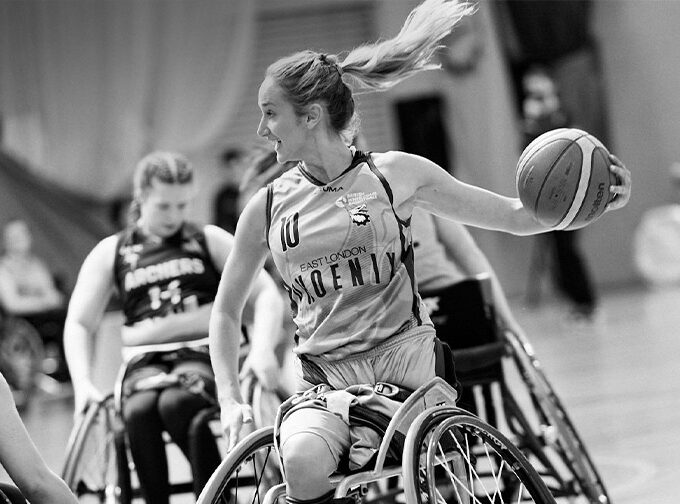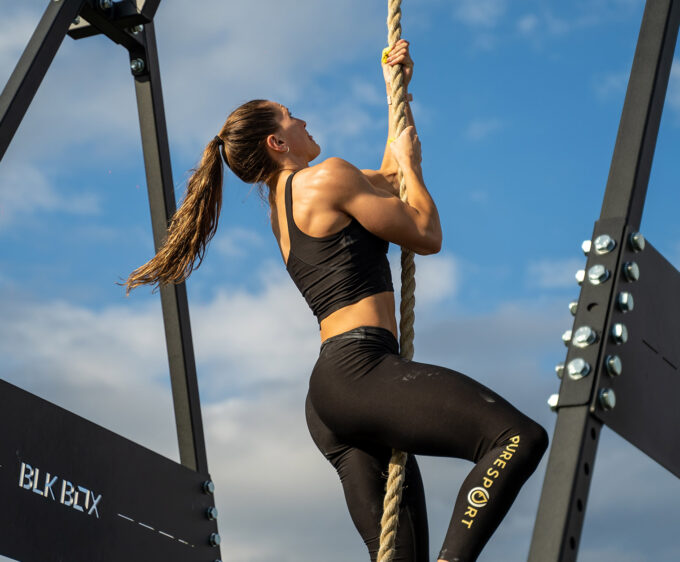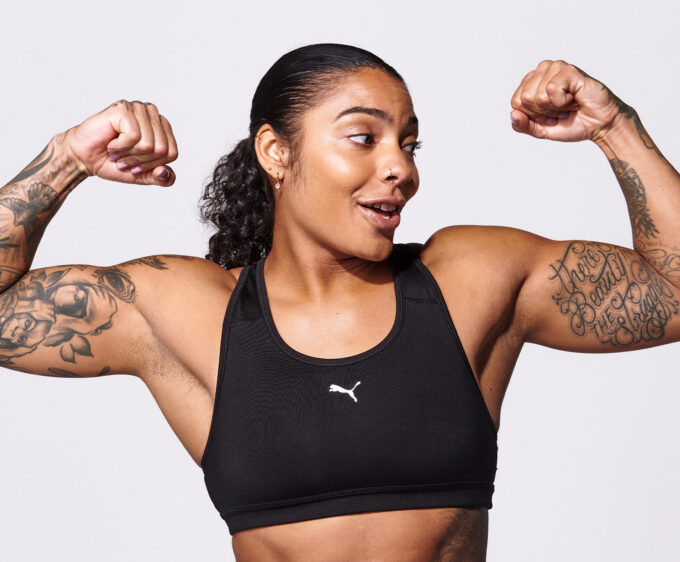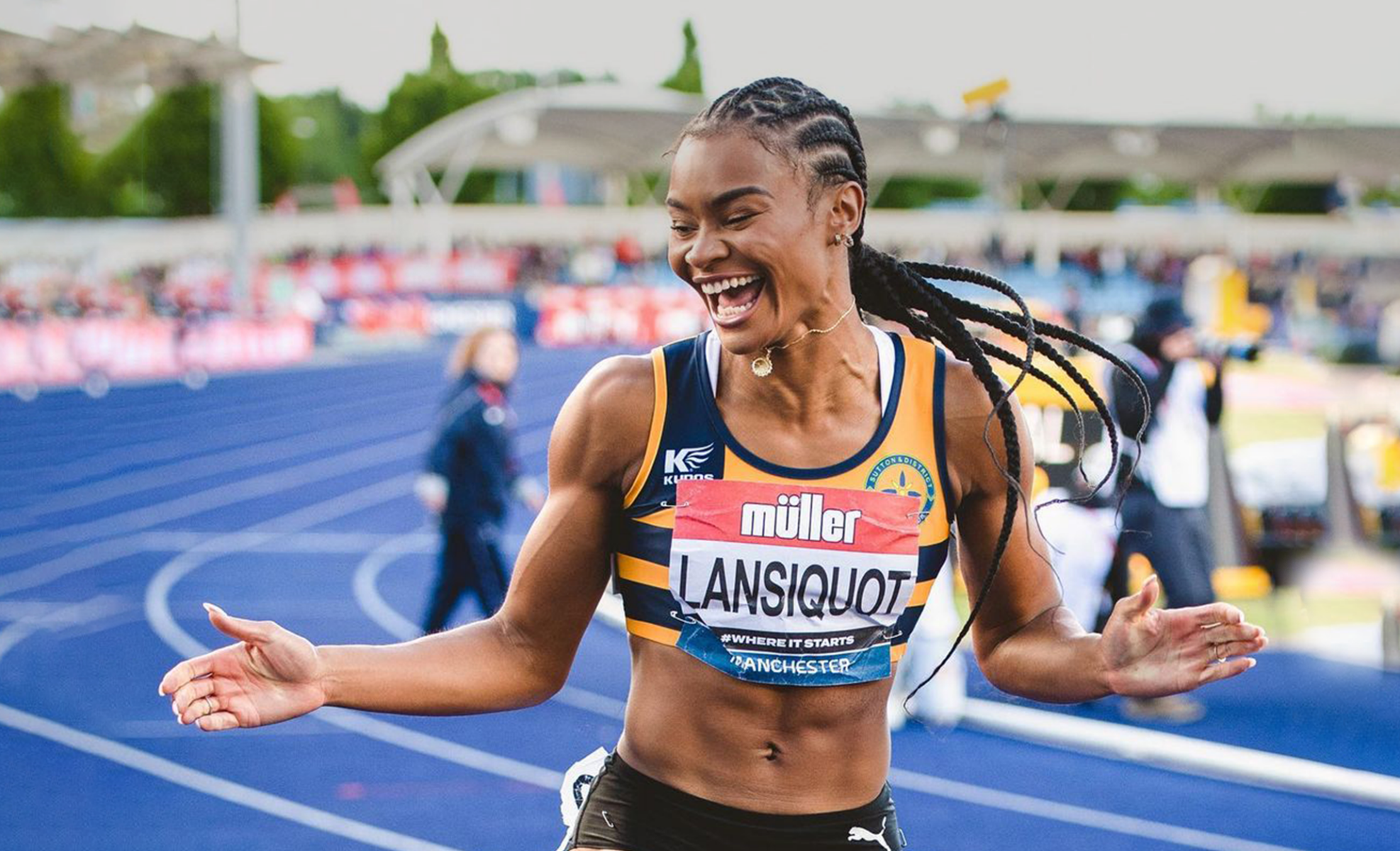
The Fallacy Of Failure
What happens if we accept and embrace failure? British sprinter Imani-Lara Lansiquot talks about failure and how she learnt to come out on top
By Imani-Lara Lansiquot
We can all picture what the perfect student at school used to look like. Seated at the front of the class, pens neatly arranged in a fresh pencil case and a ruler-straight line underneath the date on the page of a new notebook. Shrinking unless she’s 99.9% sure she can give the correct answer and doubting the ones she knows are true. I was this student at school. At times, I felt as if I was living in a tiny constructed box of possible outcomes, where my ultimate mission was to avoid failing at all costs.

It turns out that I was not a rare case. Findings from a Programme for International Student Assessment study concluded that British teenage girls rank alarmingly highly for their fear of failure, ranking fifth in this measure across 79 nations. Another study taken by Borgonovi and Han (2021) also found a statistically greater prevalence of fear of failure amongst 15-year-old girls compared to their male classmates. Strikingly, this finding was even higher amongst girls who were “high achievers” in school.
So what does this tell us? It says that those of us who are the most qualified to be bold and confident in a field are more likely to be avoidant of failure. Upon reading this, I realised that there is a problem with the way that we are framing what failure means for young women.
I could relate to most of the findings in the papers that I read. Growing up, my mind used to be an absolute minefield of potential failures. You didn’t get an A* in your exam? You’ve failed. Didn’t get into your first choice university? You’ve failed. You didn’t get a medal at a certain competition? You’ve failed. Someone doesn’t like you? You’ve failed. You’ve just missed out on a team? Guess what – you know the rest.
You see, for me, it turned into a revolving door where events that were both in and out of my control began to merge into one. I found myself slowly defined by all of the things I wasn’t rather than all of the things that I was. In spite of that, what perplexes me the most is that looking back I can’t name one setback that I’ve not gained something huge from.

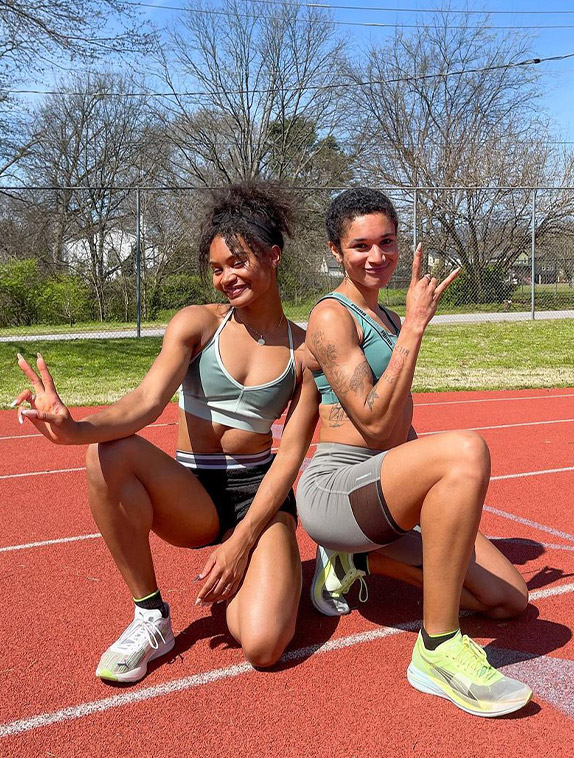
Most memorably, I remember being 19 and straight off the back of a breakthrough junior season. I had a shiny new professional contract and high hopes of making my senior debut at the London World Championships. That year ended up being completely plagued by injury and pressure, with every missed session or failed opportunity to run a personal best feeling like a huge “full-stop” on my career, because at 19, failure felt so final. Additionally, I had lots of new people around me who seemed to have the answers to avoid failure. I quickly learned that I couldn’t avoid it, but had to learn to keep moving with it.
Needless to say, I missed out on the championships entirely and watched it from home – only a 30-minute drive away. Despite this, the non-selection actually lifted a massive weight off my shoulders. What I gained in return was clarity towards the simple things that I needed as an athlete, which led to a new coaching setup, the start of a degree at my dream university and new-found independence and motivation. The following year, I made my first ever senior team, became a European finalist and ran a personal best. This begged the question, could I really name any of my setbacks as failures, if not drivers towards massive improvements in disguise?

independence
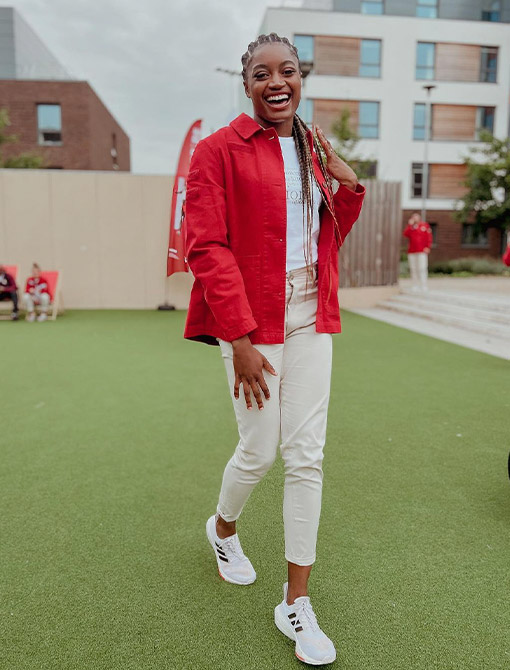
Naturally, I was intrigued to understand whether other sportswomen had experienced this same toxic relationship with failure. I spoke with five-time national lead climbing champion Molly Thompson-Smith and Commonwealth Bronze triple jump medallist Naomi Metzger about their experiences with failure and how they’ve learned to reframe it in their careers. Both women are real beacons of light in their respective sports. Molly is currently coming back from a mammoth ankle injury that occurred just weeks before a World Championship opportunity. Naomi is training for the 2023 season after a breakthrough year in 2022, where she won her first global medal at the Commonwealth Games a mere two weeks after an 18th place finish at the World Championships.
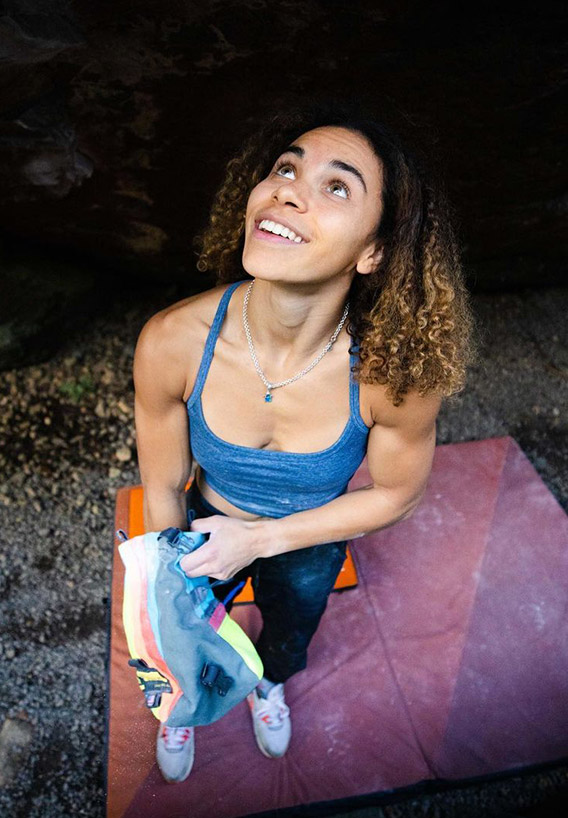
I asked Molly whether there was a time in her career, like mine, where she felt that failure played a real, defining part in her story. In the conversation, she recounted her pursuit towards a call-up for climbing’s first ever inclusion in an Olympic Games, a moment that she had dreamt of since childhood: “[The] fear of failing had an impact on my relationship with climbing at the time, as it stopped being my escape from all the negative or overwhelming emotions I felt in life and became the main reason for those feelings, and an exaggerator too. It also became a struggle to do any media work where I had to talk about the Olympics and my bid to be there as it made that prospect of failure hard to ignore.”
Upon listening to Molly, I thought it was interesting just how much weight we tend to put on the prospect of failure, when it is almost impossible to define. How do you know when you’ve completely failed at something when it is such a subjective and transient experience? In reality, it’s impossible to predict whether a setback in your journey will prevent your goal from ever being achieved, or that something better won’t happen as a result. Naomi could relate to this way of thinking after she missed out on the World Championship final. “In reality, the actual failure wasn’t that bad. I spoke with my coach, Aston, and we made a plan for the Commonwealth Games where I knew I could achieve something,” she says. “I allowed the failure to inspire me to dream bigger rather than smaller and that change in mindset ultimately led to the Commonwealth medal.”

I loved hearing that Naomi allowed her failure to drive expansion into her life, rather than shrinking it. If someone had told me this at 19, I wouldn’t have spent so much time fretting the short-term embarrassment over things going wrong. Young women should be told regularly that they can overcome even the biggest of “failures”. This attitude demonstrates a snowball effect. You can fail at one thing and it inspires action into something greater, whether that be internal or external success, says Molly. “Setbacks may hurt in the moment but they’re definitely fuel for me to prove to myself that with a more focused or smarter approach to the task, there could be a better outcome,” she says. “I can think back to the setback of my pulley rupture and I don’t see loss in that area, but proof that I’m resilient, and tough enough to find opportunity in this current injury.”
Reframing failure in this way begins with contextualising it as a small part of a bigger story. It doesn’t matter whether that be in the classroom, on the track or the field, I’ve consistently found that facing the things that I fear, actually makes them a whole lot smaller. Naomi shared that her entire career so far has involved being comfortable with the prospect of failure, as she had the pressure of breaking through British youth and junior records just to meet the standards for international competitions growing up. Alongside work with her sports psychologist, she has found a way to reframe setbacks as a part of her story that makes her highs more worthwhile. “When I speak at schools and tell young kids that I missed out on the Olympic team by 10cm, they lose their minds!” Naomi says. “It makes sharing the successes that came after that mean so much more. Failure in sport adds to your story. It helps other people deal with their situations.”
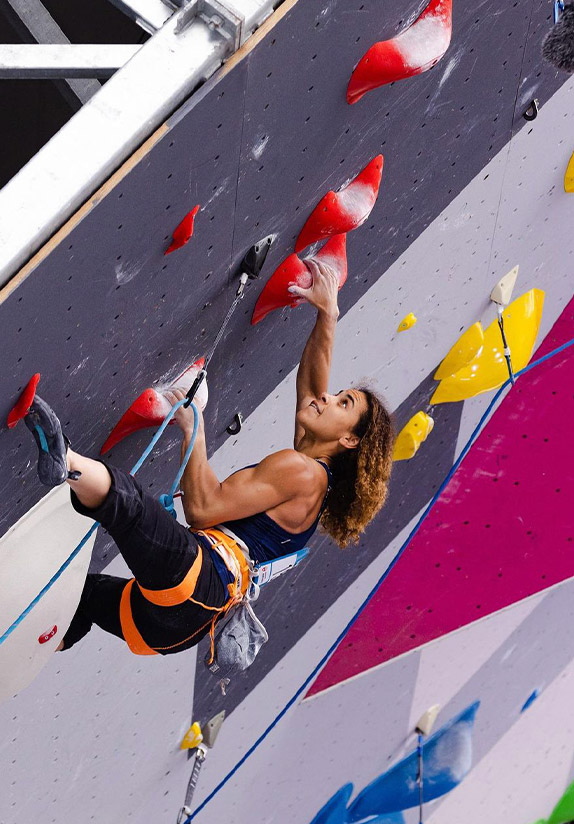
Another way to reframe failure is to actually rename it as an opportunity, advises Molly. “Through failing to do or achieve something, you’re able to stop, think and evaluate the reasons why it didn’t work,” she adds. “This is an invaluable process that allows for progression in that area – and beyond.” Both approaches encompass a determination towards honouring your journey. This commitment means that you cannot be afraid of any part of it – the good, the bad or the ugly. Imagine if we could go back to being as brave as we were as toddlers, not too afraid to walk or climb or fall, because we knew that we would just try again. The resounding word that comes to mind when I imagine this kind of reality is freedom. The races that I have run the best are those where I have felt free and in flow.
I asked both Naomi and Molly what might have been different if someone had told them as young girls that they could not fail. Molly replied, “l’d climb to get to the top, rather than climbing so as not to fall off. This may sound like the same thing but there’s a big difference whether we’re talking about climbing or doing anything else in these two styles. We’re talking about doing something to achieve and doing it with confidence and flair, compared to doing something defensively and focusing more on not making mistakes, which generally leads to disappointment.” When I asked Naomi the same question, she felt the same but related it to confidence off the track. “I would put myself out there a lot more”, she says. “For a while I was really happy sharing my personality through my vlogs and lots of other coaches made me feel like I wouldn’t jump far if I kept this up. It made me scared to do it because I was afraid of proving them right. If someone had told me that I couldn’t fail, I’d be even more out there because I wouldn’t have had that fear.”
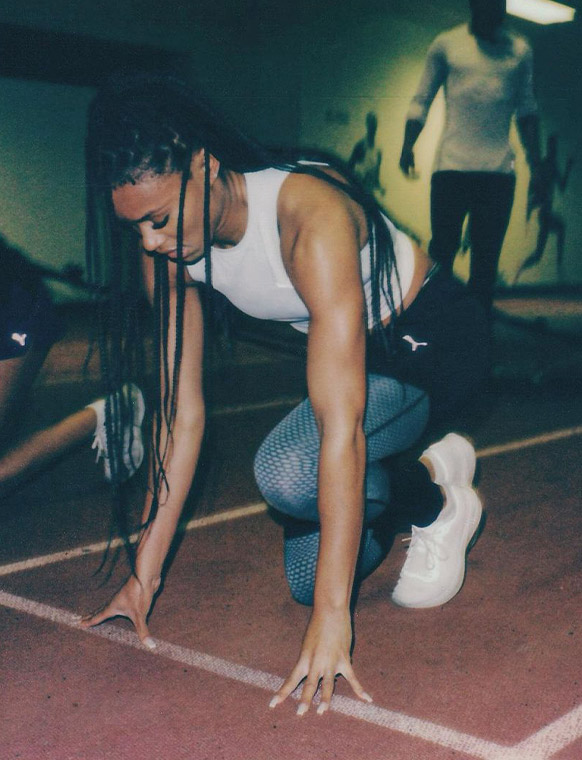
Failure is a fallacy. It’s also unavoidable if you’re trying to achieve something big, something that either has only rarely or never been achieved before, which explains why our high-achieving model student in the beginning is so plagued with thoughts about it. Some of us tend to avoid the things we have failed at before and this keeps us stuck in the past. Painting failure as something we should be fearful of, something to avoid at all costs, whether that be at school, at work, in pursuit of any dream, dispels all of the good that genuinely does come from failing. I recognised a certain level of bravery and vulnerability in Naomi and Molly’s stories, one that was open to probable potholes in the pursuit towards success. Whether you get to your goal straight away or you have a few detours, you won’t regret betting on yourself the whole way.
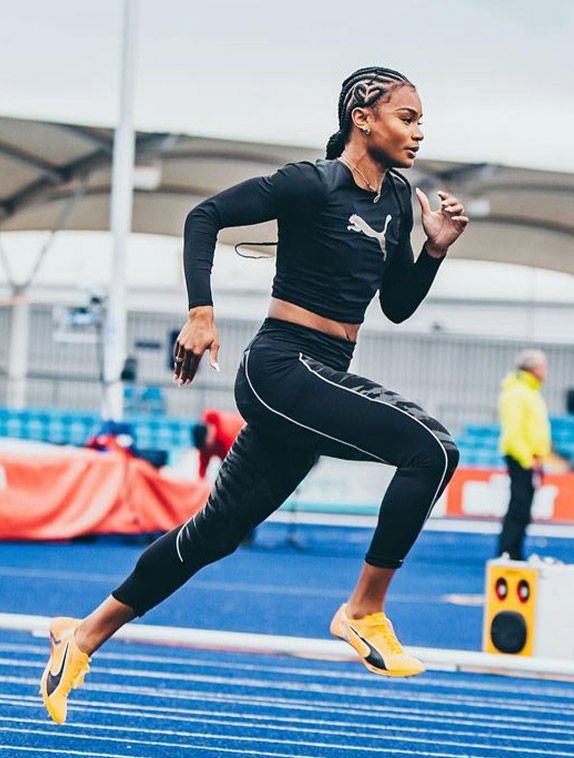
These are the lessons that we should be teaching young girls in schools: not to aim for failure, but to expect it, to be equipped for it and resilient in the face of it. Just imagine the endless possibilities if we knew that failure wasn’t so defining, so final. We as a society have a responsibility to equip women with the bravery to experiment and succeed in the things they may not be expected to. In the face of reframing failure, it is not the outcome that is important, but the owning of your process that counts.

Title Image by Adam Roussak

